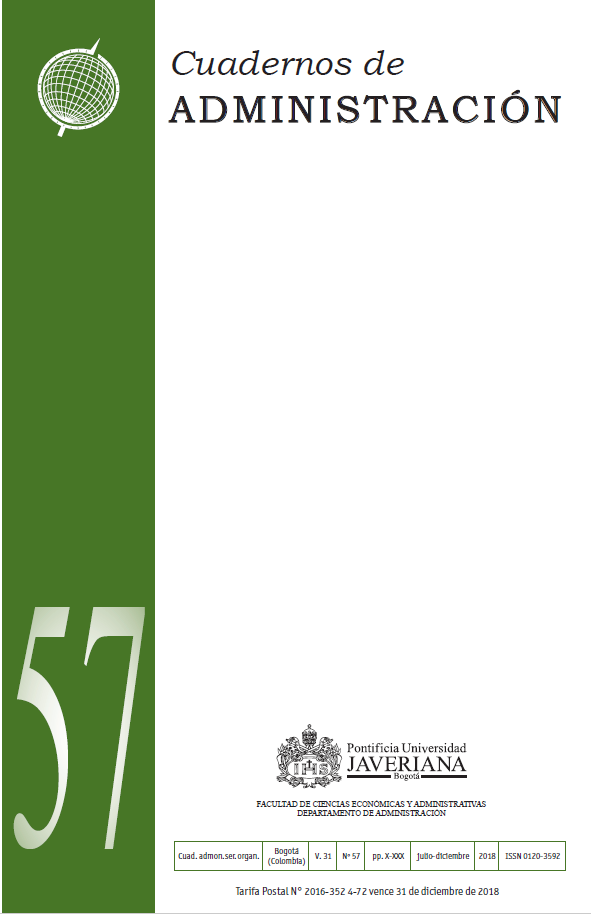Challenging the oppressive social context by redesigning learning space. The case of a business ethics class in Russia
##plugins.themes.bootstrap3.article.details##
The traditional management educational methods like in class group activities derive from Western democratic principles and work well in tolerant and pluralistic climate. However, in dogmatic and oppressive social environment, they just reinforce the dominant culture and create obstacles to develop students' critical reflexive thinking. Learning space becomes constrained by different overwhelming contextual factors: from group pressure to an authoritarian political background. On the case of the Russian business ethics classroom, this paper examines the influence of an oppressive context on the learning space and offers an approach to weakening this influence by intensifying students' critical reflexivity using writing assignments and supportive teacher's feedback based on a narrative therapy approach.
ethics, management education, Russia, reflexivityética, educación empresarial, Rusia, reflexividadética, educação empresarial, Rússia, reflexividade
Arendt H. (1963). Eichman in Jerusalem: A report on the banality of evil. New York: The Vinking Press.
Arendt H. (1998) The Human Condition. Chicago: Chicago University Press.
Becker U. and Vasileva A. (2016). Russia's political economy re-conceptualized: A changing hybrid of liberalism, statism, and patrimonialism. Journal of Eurasian Studies 8 (2017) 83–96.
Berger P. and Luckmann T. (1966). The social construction of reality. New York: Anchor Books.
Brookfield S (2005). The Power of Critical Theory for Adult Learning and Teaching. Maidenhead: Open University Press.
Calas M. and Smircich L. (1999). Past postmodernism? Reflections and tentative directions. Academy of Management Review, 24(4), 649-671.
Chia R. (1996). The problem of reflexivity in organizational research: Towards a postmodern science of organization. Organization, 3(1), 31-59.
Levada-Center research commissioned by Sberbank (2013). Consumer behavior through the lenses of trust and responsibility. Downloaded on 24 May 2018 http://gtmarket.ru/files/news/5390/ Consumer_Behavior_Trust_and_Responsibility_of_Russian_Society_February_2013.pdf
Credit Suisse Research Institute Global Wealth Report 2017. Downloaded on 24 May 2018 https://www.credit-suisse.com/corporate/en/research/research-institute/global-wealth-report.html
Cunliffe A. (2004). On becoming a critically reflexive practitioner. A Journal of Management Education, Vol 28, Issue 4.
Eagleton T. (2007). Ideology: an introduction (New and updated ed.). London: Verso.
Gioia D. (1992). Pinto fires and personal ethics: A script analysis of missed opportunities. Journal of Business Ethics, 11, 379–389.
Giving Voice to Values Curriculum
https://www.darden.virginia.edu/ibis/initiatives/giving-voice-to-values/
Goffman E. (1959). The presentation of self in everyday life. Garden City, NY: Doubleday.
Golovin N. and Sibirev V. (2016). The Possibility of Cultural Recession in Russia since 2010: Reflections on Values Research. The Journal of Sociology and Social Anthropology. Volume XIX, 3 (86).
Gramsci A. (1988). A Gramsci reader: selected writings 1916-1935. London: Lawrence & Wishart.
Habermas J. (1970). Technology and science as "ideology". In J. J. Shapiro (Ed.), Toward a Rational Society: Student protest, science, and politics (trans). Boston: Beacon Press.
Hardy C. and Clegg S. (1997). Relativity without relativism: Reflexivity in post-paradigm organization studies. British Journal of Management, 8(Special Issue), S5-S17.
Jørgensen K. and Fatien Diochon P. (2018). Creative coaching in the organizational space of appearance.
Louis D. and Fatien Diochon P. (2018) The coaching space: A production of power relationships in organizational settings.
Marcuse H. (1991). One-dimensional man: studies in the ideology of advanced industrial society (2nd ed. ed.). Boston: Beacon Press.
Matveev I. (2016). Russia, Inc. Downloaded on 20 May 2018 from
https://www.opendemocracy.net/od-russia/ilya-matveev/russia-inc.
Mills C. W. (1959). The Sociological Imagination. New York, Oxford University Press.
Myerhoff B. (2007). Stories as equipment for living. Michigan: The University of Michigan Press.
Palazzo, Krings and Hoffrage (2013). Ethical Blindness. Journal of Business Ethics, February 2013.
Paneyakh E. (2016). Pardon impossible to execute: the values and actions of Russians. Downloaded on 18 May 2018 from https://theoryandpractice.ru/videos/1006-ella-paneyakh-kaznit-nelzya-pomilovat-tsennosti-i-postupki-rossiyan.
Shoukry H. (2016). Coaching for Emancipation: A framework for coaching in oppressive environments. International Journal of Evidence Based Coaching and Mentoring Vol. 14, No. 2, August 2016.
Transparency International's Corruption Perceptions Index 2017. Downloaded on 10 May 2018 https://www.transparency.org/country/RUS.
Walter S. and Fox H. (2012). Narrative therapy and outsider witness practice: Teachers as a community of acknowledgment. Educational & Child Psychology Vol 29 No 2 June 2012.
Young I. M. (2000). Five Faces of Oppression. In M. Adams, W. J. Blumenfeld, R. Castaneda, H. W. Hackman, M. L. Peters, & X. Zuniga (Eds.), Readings for Diversity and Social Justice (pp. 35-49). New York: Routledge.
Yushina V. (2014). A comparative analysis of American and Russian styles of leadership on the ground of behavioral and situational theories. Downloaded on 24 May 2018 from http://ekonomika.snauka.ru/2014/02/3837.


